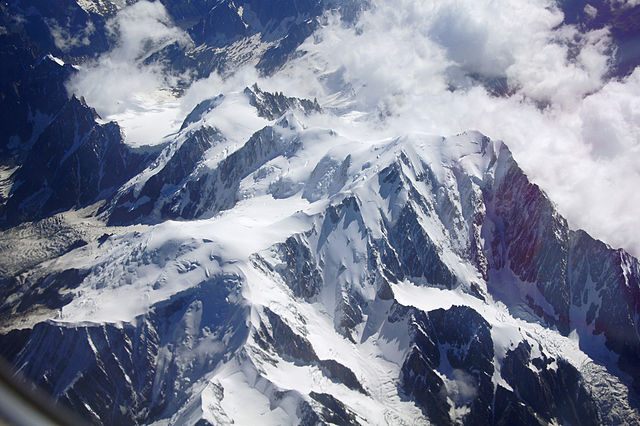The Remains of 3 More Long-Missing Hikers Have Been Found in the Alps
For the third time this summer, melting Alpine glaciers have revealed the fate of missing hikers.

For the third time this summer, the bodies of long-lost hikers in the Alps have been discovered as the mountains’ icy peaks melt. In July, a worker discovered the remains of a Swiss couple who had been missing since 1942; earlier this month, two hikers climbing a Swiss peak came across a hand and a pair of shoes that turned out to belong to a hiker who went missing in 1987.
Now, a French climber has found the bodies of three climbers on Mont Blanc, the Alps’s highest mountain. Local police believe that the three climbers died in the mid-90s, AFP reports.
For the past few years, the remains of missing people have been appearing with some regularity in the Alpine region. In 2015, a climber on the Matterhorn glacier found the bodies of two Japanese climbers missing since 1970; the remains of a Czech man missing since 1974 were also discovered. In 2014, a helicopter pilot spotted the bones of a 27-year-old British hiker who disappeared in 1979. In the Andes, too, retreating glaciers have revealed the remains of long-lost pilots and other unfortunates.
The local police have been keeping a list of missing hikers in the region since 1925, the year after George Mallory and Andrew Irvine disappeared while attempting to summit Mt. Everest, in the Himalayas. During the time that Alpine police have kept their list, 280 people have gone missing in the area, National Geographic reports.
More of these bodies are being discovered as the glaciers start to melt faster than ever. As Deutsche Welle reports, the Alpine glaciers of Europe are half the size they were in 1900, and the rate at which they have been disappearing has been accelerating since the 1980s. In the course of just a few decades, Mont Blanc has lost about a quarter of its glacial ice. The ice is melting more quickly in the southern parts of the Alpine range, but it’s possible the glaciers in this part of the world will have disappeared almost entirely by mid-century.
As the glaciers disappear, more of those missing people’s remains will almost certainly appear; the glaciers may also contain traces of human life that date back far further than 1925. It was in the Alps, after all, that Ötzi the Iceman was discovered in 1991.












Follow us on Twitter to get the latest on the world's hidden wonders.
Like us on Facebook to get the latest on the world's hidden wonders.
Follow us on Twitter Like us on Facebook